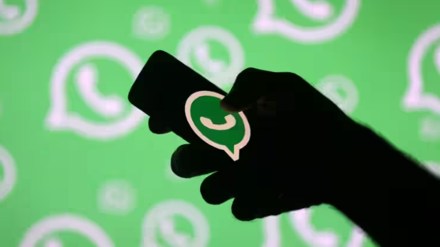Meta-owned messaging app WhatsApp is looking to play a larger and more meaningful role in India’s digital growth with its Business app, introduced four-years back.
The company is hoping to repeat the success of the messaging platform, which has over 400 million users by onboarding small and large enterprises to engage with their consumers through the messaging platform.
“For small and medium businesses that don’t have a fancy website and not enough capital to build an app, WhatsApp is helping them grow their businesses,” Ravi Garg, director of business messaging India at Meta, told FE.
“For SMEs the service today is free and we are adding more features for them to connect and engage with their consumers through WhatsApp Business app only,” Garg said. He added the Business app for small businesses will continue to remain free and WhatsApp will only charge them for certain features like sending marketing messages to consumers, etc.
“There are tens of millions of small businesses in India and for them the cost of building an app and the cost of getting an app downloaded is higher. They are better off using WhatsApp as a primary surface for building a digital presence. For the larger businesses, WhatsApp is a bridge to the app,” Garg explained.
WhatsApp launched its Business app and Business Platform four years back. With monetisation opportunities kicking in and especially with larger brands preferring the Business Platform, the company sees business messaging as a major growth opportunity. Today, WhatsApp Business app is used by over 200 million SMEs, with over a billion conversations happening every week.
For Meta, a major chunk of the revenues currently comes from click to message/click to WhatsApp ads. The feature helps users to send a WhatsApp message by clicking on the ads on Facebook and Instagram. Besides WhatsApp, the businesses can also route the messages to their messenger on Facebook and Instagram. Last year, Meta CEO Mark Zuckerberg had said that Click-to-WhatsApp ads crossed a $1.5 billion run rate, growing more than 80% YoY.
Unlike the Business app which is largely for smaller businesses supporting features like product catalogue, consumer relationship tools like greeting messages, in-build ads, quick automatic replies etc, the company’s Business platform is for larger enterprises, which has more advanced features like sending broadcast messaging, campaigns, offering customer service, and chatbot integration etc. WhatsApp charges the users of its business platform based on message categories such as utility, authentication, service, and marketing, etc. The company charges businesses Rs 0.3082 for every utility message while for marketing messages it charges Rs 0.7265. Earlier, it charged a flat fee of Rs 0.48 per conversation.
“The prices went up in June for larger companies who have higher conversation volumes and whose order size runs into millions. It was accepted well by the businesses as they understood the value and ROI (return on investment) that WhatsApp provides,” Garg said, adding that the price tweaks were not an increase but a rationalisation of prices.
Earlier, the company had a uniform pricing for all the types of messages which, in a way, was leading to higher costs for companies even for utility messages etc. “Based on the feedback of the industry we introduced differential pricing based on the conversation which is actually saving costs for businesses,” he pointed out.
On the issue of brands sending promotional messages to users on WhatsApp without consent, Garg said the company through its AI engines keeps a track of such businesses in terms of the number of consumers blocking them. WhatsApp uses an internal system which it calls Signal Red based on which it also blocks the businesses indulging in spam messages, Garg said. According to Kantar, 75% of consumers prefer doing business with companies who are available over messages.
